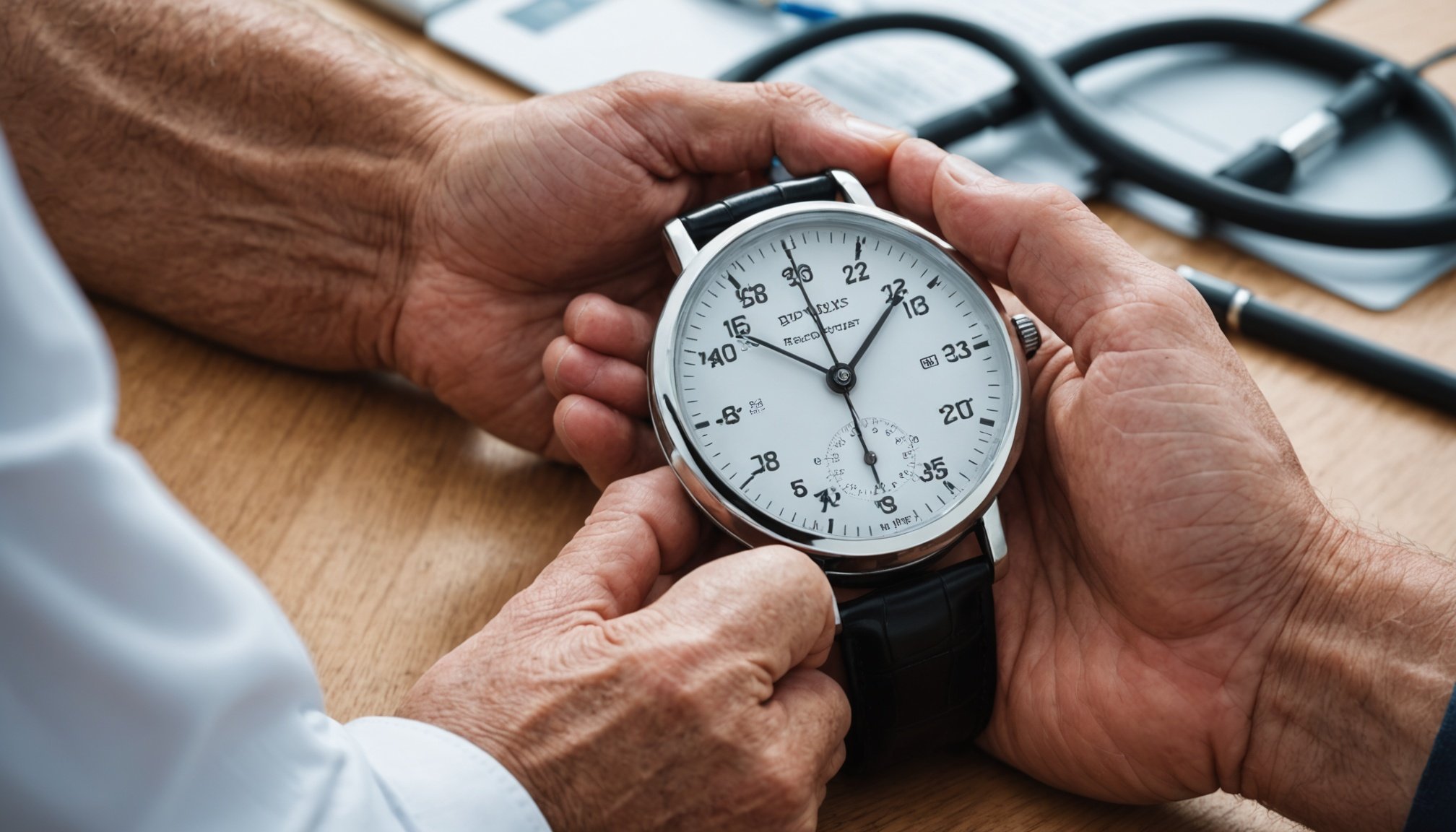Exploring Innovative Strategies for Managing Resistant Hypertension Without Medications
Resistant hypertension, a condition where high blood pressure persists despite the use of multiple antihypertensive medications, poses a significant challenge to both patients and healthcare providers. As the prevalence of this condition continues to rise, the need for innovative and non-pharmacological strategies to manage it has become increasingly important. In this article, we will delve into the latest approaches and techniques that are revolutionizing the management of resistant hypertension, focusing on lifestyle modifications, advanced medical procedures, and emerging technologies.
Understanding Resistant Hypertension
Before we dive into the innovative strategies, it’s crucial to understand what resistant hypertension is and its implications on health. Resistant hypertension is defined as blood pressure that remains above the target level despite the concurrent use of three antihypertensive agents of different classes, one of which should be a diuretic, at optimal doses.
In parallel : What are the benefits of integrating traditional medicine with modern healthcare?
The Impact on Health
Resistant hypertension is a major risk factor for cardiovascular diseases, including heart failure, kidney disease, and stroke. The American Heart Association emphasizes that managing high blood pressure is critical to preventing these complications. Dr. Samir Kapadia, a cardiologist at the Cleveland Clinic, notes, “Resistant hypertension is a red flag indicating that the patient is at a higher risk for cardiovascular events. It requires a comprehensive and multidisciplinary approach to manage effectively.”
Lifestyle Modifications: The First Line of Defense
Lifestyle changes are often the first and most effective way to manage resistant hypertension without relying on medication.
Also to see : How Does Long-term Antibiotic Use Affect the Immune System Development in Children?
Dietary Changes
- DASH and Mediterranean Diets: These diets have been shown to significantly reduce blood pressure. The DASH diet, for example, is rich in fruits, vegetables, whole grains, and low-fat dairy products, and has been associated with a reduction in systolic blood pressure (SBP) and diastolic blood pressure (DBP) of approximately 5-6 mmHg.
- Sodium Reduction: Reducing dietary sodium intake to less than 5.8 grams per day can lower SBP by about 5 mmHg and DBP by about 2 mmHg.
- Potassium Intake: Increasing potassium intake through a diet rich in fruits and vegetables or by using potassium-enriched salts can help lower blood pressure by approximately 2-4 mmHg.
Physical Activity
Regular physical activity is another key component of lifestyle modification. Aerobic exercise, such as walking, jogging, or cycling, can reduce SBP by 2-4 mmHg in normotensive individuals and by 5-8 mmHg in those with hypertension. The new ESC guidelines recommend at least 150 minutes of moderate-intensity aerobic exercise or 75 minutes of vigorous-intensity aerobic exercise per week, combined with resistance training.
Sleep and Stress Management
- Sleep Quality: Poor sleep quality, including sleep apnea, can exacerbate hypertension. Ensuring 7-8 hours of quality sleep per night is essential.
- Stress Reduction: Techniques such as meditation, yoga, and deep breathing exercises can help manage stress, which is a known contributor to high blood pressure.
Advanced Medical Procedures
For patients who do not respond to lifestyle modifications and medication, several advanced medical procedures offer promising alternatives.
Renal Denervation
Renal denervation is a minimally invasive procedure that targets the nerves in the kidneys to help lower blood pressure. This procedure has shown significant promise in reducing blood pressure in patients with resistant hypertension. Dr. Kapadia from the Cleveland Clinic Abu Dhabi notes, “Renal denervation is a game-changer for patients with resistant hypertension. It offers a new hope for those who have exhausted all other treatment options.”
Baroreflex Activation Therapy
Baroreflex activation therapy involves implanting a device that stimulates the baroreceptors in the carotid arteries, which helps to lower blood pressure. This therapy has been shown to be effective in reducing blood pressure in clinical trials and is considered a viable option for patients with resistant hypertension.
Emerging Technologies
Emerging technologies are also playing a crucial role in the management of resistant hypertension.
Bioelectronic Devices
Bioelectronic devices that deliver pulsed electricity to the body have been shown to be a promising strategy for treating drug-resistant hypertension. These devices work by modulating the neural signals that control blood pressure, offering a novel approach to managing this condition.
Practical Insights and Actionable Advice
Here are some practical tips and insights for managing resistant hypertension without medications:
- Monitor Blood Pressure Regularly: Regular monitoring of blood pressure at home can help identify patterns and ensure that lifestyle modifications are effective.
- Adhere to Lifestyle Changes: Consistency is key when it comes to lifestyle modifications. Make dietary changes and physical activity a part of your daily routine.
- Seek Professional Help: Consult with healthcare providers to tailor a management plan that suits your specific needs.
- Stay Informed: Keep up-to-date with the latest research and advancements in the field of hypertension management.
Detailed Bullet Point List: Lifestyle Modifications for Resistant Hypertension
-
Dietary Changes:
-
Adopt the DASH or Mediterranean diet
-
Reduce sodium intake to less than 5.8 grams per day
-
Increase potassium intake through fruits, vegetables, or potassium-enriched salts
-
Maintain a stable BMI between 20-25 kg/m²
-
Reduce waist circumference to less than 94 cm in males and less than 80 cm in females
-
Physical Activity:
-
Engage in at least 150 minutes of moderate-intensity aerobic exercise or 75 minutes of vigorous-intensity aerobic exercise per week
-
Incorporate resistance training 2-3 times per week
-
Sleep and Stress Management:
-
Ensure 7-8 hours of quality sleep per night
-
Practice stress reduction techniques such as meditation, yoga, or deep breathing exercises
-
Regular Monitoring:
-
Monitor blood pressure regularly at home
-
Keep a log of blood pressure readings to track progress and identify patterns
Comprehensive Table: Comparison of Advanced Medical Procedures
| Procedure | Description | Efficacy | Risks and Complications |
|---|---|---|---|
| Renal Denervation | Targets nerves in the kidneys to lower blood pressure | Significant reduction in blood pressure in clinical trials | Minimal risks, including temporary pain and bruising at the procedure site |
| Baroreflex Activation | Stimulates baroreceptors in the carotid arteries to lower blood pressure | Effective in reducing blood pressure in clinical trials | Risks include infection, nerve damage, and device malfunction |
| Bioelectronic Devices | Delivers pulsed electricity to modulate neural signals controlling blood pressure | Promising results in early trials | Risks include device malfunction, skin irritation, and potential nerve damage |
Managing resistant hypertension requires a multifaceted approach that includes lifestyle modifications, advanced medical procedures, and emerging technologies. By understanding the latest strategies and techniques, patients and healthcare providers can work together to achieve better blood pressure control and reduce the risk of cardiovascular diseases.
As Dr. Kapadia emphasizes, “The key to managing resistant hypertension is a combination of adherence to lifestyle changes, careful selection of medical procedures, and staying updated with the latest advancements in the field. With the right approach, we can significantly improve the health outcomes for these patients.”
By adopting these innovative strategies, we can move closer to a future where resistant hypertension is no longer a daunting challenge but a manageable condition that can be effectively controlled without relying solely on medications.











